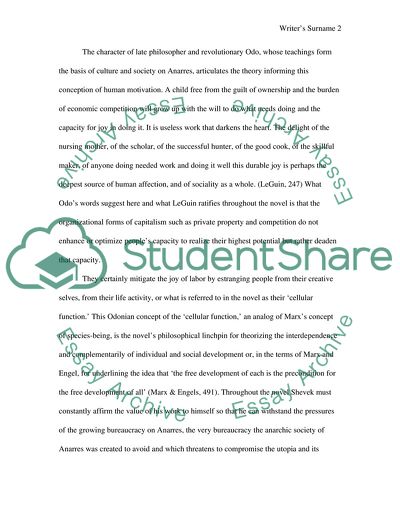Cite this document
(Analysis of The Dispossessed written by Ursula LeGuin Book Report/Review, n.d.)
Analysis of The Dispossessed written by Ursula LeGuin Book Report/Review. https://studentshare.org/literature/1709838-the-dispossessed-by-ursulak-leguin
Analysis of The Dispossessed written by Ursula LeGuin Book Report/Review. https://studentshare.org/literature/1709838-the-dispossessed-by-ursulak-leguin
(Analysis of The Dispossessed Written by Ursula LeGuin Book Report/Review)
Analysis of The Dispossessed Written by Ursula LeGuin Book Report/Review. https://studentshare.org/literature/1709838-the-dispossessed-by-ursulak-leguin.
Analysis of The Dispossessed Written by Ursula LeGuin Book Report/Review. https://studentshare.org/literature/1709838-the-dispossessed-by-ursulak-leguin.
“Analysis of The Dispossessed Written by Ursula LeGuin Book Report/Review”. https://studentshare.org/literature/1709838-the-dispossessed-by-ursulak-leguin.


